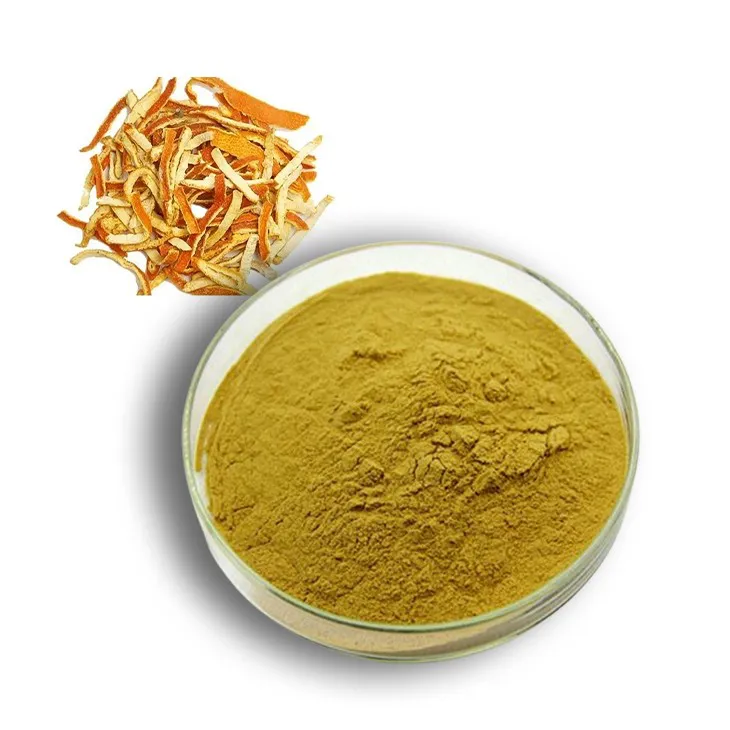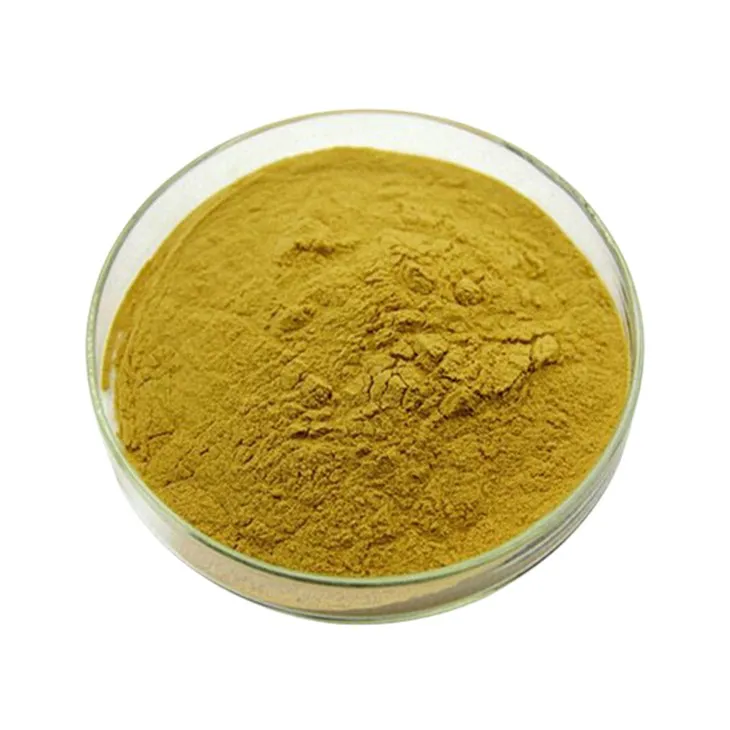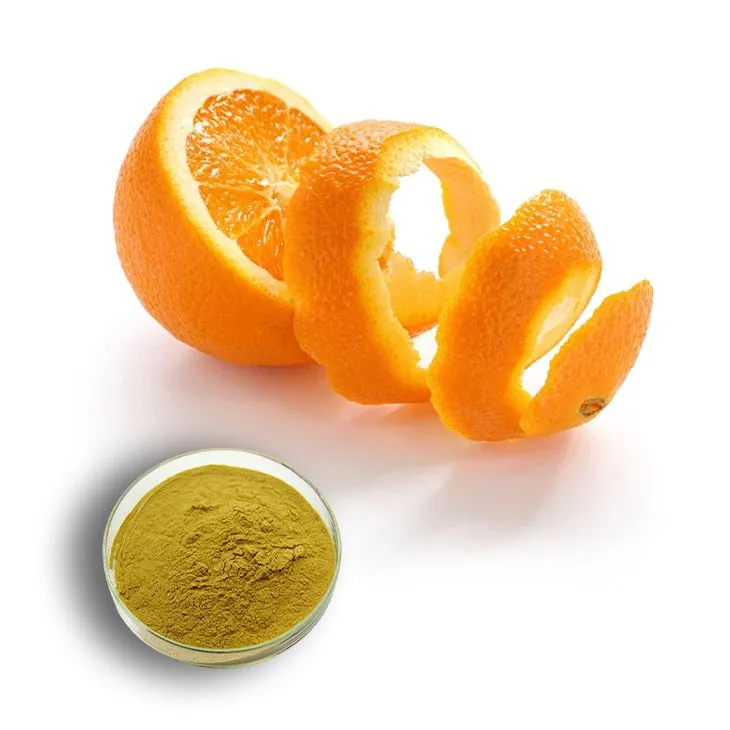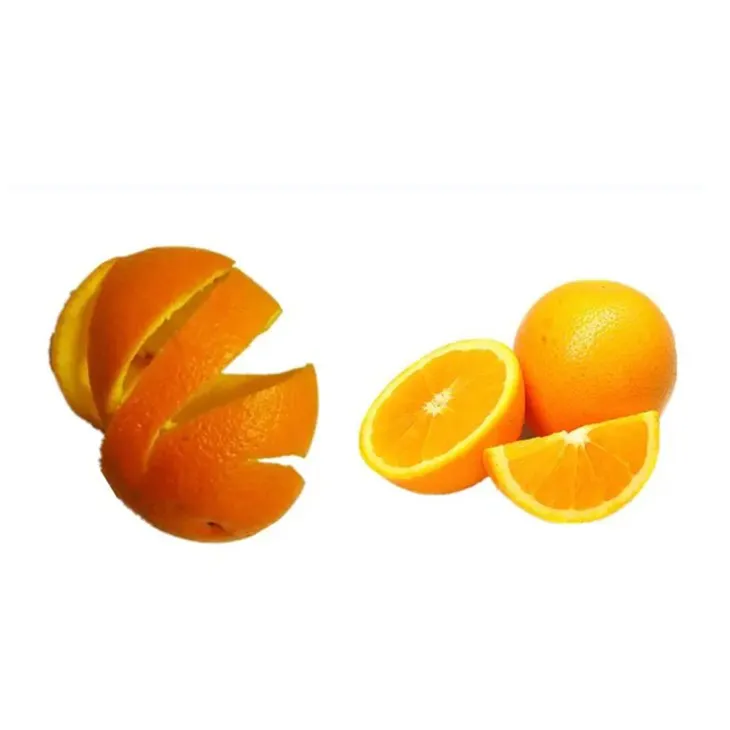- 0086-571-85302990
- sales@greenskybio.com
Hesperidin
2024-11-13

1. Introduction
Hesperidin, a natural flavonoid glycoside, is widely distributed in citrus fruits like oranges and lemons. Chemically, it is composed of rutinose and hesperetin. This compound has become a subject of great interest in numerous fields due to its various properties and potential applications.

2. Medical Applications
2.1 Antioxidant Properties
Hesperidin exhibits antioxidant activities. Free radicals are highly reactive molecules that can cause damage to cells in the body through a process known as oxidative stress. Antioxidants like Hesperidin can scavenge these free radicals, thereby reducing oxidative stress and protecting cells from potential harm. This property is crucial for maintaining overall health as oxidative stress has been associated with a variety of diseases including cancer, neurodegenerative disorders, and cardiovascular diseases.
2.2 Anti - inflammatory Effects
Another significant pharmacological activity of hesperidin is its anti - inflammatory effect. Inflammation is a natural response of the body to injury or infection. However, chronic inflammation can lead to various diseases. Hesperidin has the potential to alleviate inflammation - related diseases. It may work by inhibiting certain inflammatory mediators or pathways in the body. For example, it can interfere with the production of cytokines, which are small proteins that play a key role in the inflammatory response.
2.3 Cardiovascular Health Benefits
- Hesperidin is beneficial for cardiovascular health in multiple ways.
- It can improve blood vessel function. By promoting the relaxation of blood vessels, it helps in maintaining normal blood pressure. This is important as high blood pressure is a major risk factor for heart disease and stroke.
- Reducing blood lipid levels is another aspect of its cardiovascular benefits. High levels of lipids such as cholesterol and triglycerides in the blood are associated with an increased risk of atherosclerosis, a condition where plaque builds up in the arteries. Hesperidin may help in reducing these lipid levels, thereby reducing the risk of cardiovascular problems.
- It also has the ability to prevent platelet aggregation. Platelets are small cell fragments in the blood that play a crucial role in blood clotting. Excessive platelet aggregation can lead to the formation of blood clots, which can block blood vessels and cause heart attacks or strokes. By preventing platelet aggregation, hesperidin can contribute to a healthier cardiovascular system.

3. Cosmetic Applications
3.1 Collagen Synthesis Promotion
In the cosmetic industry, hesperidin is highly valued for its skin - friendly characteristics. One of its key functions is promoting collagen synthesis. Collagen is a protein that provides structural support to the skin. As we age, the production of collagen in the body decreases, leading to a loss of skin elasticity and the appearance of wrinkles and fine lines. By promoting collagen synthesis, hesperidin helps in maintaining skin elasticity and firmness, which in turn can reduce the appearance of wrinkles and fine lines, making the skin look younger and more radiant.

4. Food Industry Applications
4.1 Natural Additive
Hesperidin can be used as a natural additive in the food industry.
- It imparts a certain flavor to food products. The unique taste it offers can enhance the overall flavor profile of various food items.
- Moreover, it has potential health - promoting effects for consumers. As consumers are becoming more health - conscious, the addition of hesperidin to food can be an attractive option as it not only adds flavor but also provides potential health benefits such as antioxidant and anti - inflammatory effects.

5. Conclusion
In conclusion, hesperidin is a highly valuable compound with a wide range of applications. Its presence in citrus fruits makes it a natural and accessible source of potential health and beauty benefits. In the medical field, its antioxidant, anti - inflammatory, and cardiovascular - protective properties offer great potential for the treatment and prevention of various diseases. In the cosmetic industry, it helps in maintaining skin health and appearance. And in the food industry, it serves as a natural additive with both flavor - enhancing and health - promoting qualities. Overall, further research and development are likely to uncover even more applications and benefits of this remarkable compound.
FAQ:
What is the chemical composition of Hesperidin?
Hesperidin is composed of rutinose and hesperetin.
Where can Hesperidin be found?
Hesperidin is widely found in citrus fruits such as oranges and lemons.
What are the pharmacological activities of Hesperidin in the medical area?
In the medical area, Hesperidin has antioxidant properties which can scavenge free radicals in the body, reducing oxidative stress and protecting cells from damage. It also has anti - inflammatory effects, potentially alleviating inflammation - related diseases. Some studies suggest that it may contribute to cardiovascular health by improving blood vessel function, reducing blood lipid levels, and preventing platelet aggregation.
How is Hesperidin used in the cosmetic industry?
In the cosmetic industry, Hesperidin is used for its skin - friendly features. It can promote collagen synthesis, which is crucial for maintaining skin elasticity and firmness, helping to reduce wrinkles and fine lines and making the skin look younger and more radiant.
What role does Hesperidin play in the food industry?
In the food industry, Hesperidin can be used as a natural additive. It not only provides a certain flavor but also has potential health - promoting effects for consumers.
Related literature
- The Antioxidant and Anti - Inflammatory Properties of Hesperidin"
- "Hesperidin and Cardiovascular Health: A Review"
- "The Role of Hesperidin in Cosmetic Applications"
- ▶ Hesperidin
- ▶ Citrus Bioflavonoids
- ▶ Plant Extract
- ▶ lycopene
- ▶ Diosmin
- ▶ Grape seed extract
- ▶ Sea buckthorn Juice Powder
- ▶ Fruit Juice Powder
- ▶ Hops Extract
- ▶ Artichoke Extract
- ▶ Mushroom extract
- ▶ Astaxanthin
- ▶ Green Tea Extract
- ▶ Curcumin
- ▶ Horse Chestnut Extract
- ▶ Other Product
- ▶ Boswellia Serrata Extract
- ▶ Resveratrol
- ▶ Marigold Extract
- ▶ Grape Leaf Extract
- ▶ New Product
- ▶ Aminolevulinic acid
- ▶ Cranberry Extract
- ▶ Red Yeast Rice
- ▶ Red Wine Extract
-
Eyebright Extract
2024-11-13
-
Grapefruit Seed Extract Powder
2024-11-13
-
Hericium erinaceus extract powder
2024-11-13
-
Peppermint Oil
2024-11-13
-
Cat Claw Extract
2024-11-13
-
Okra Extract
2024-11-13
-
Citrus Aurantium Extract
2024-11-13
-
Boswellia Serrata Extract
2024-11-13
-
Withania Somnifera Extract
2024-11-13
-
Tongkat Ali Extract
2024-11-13





















